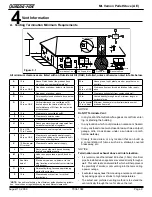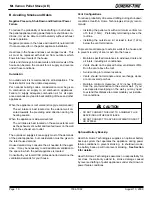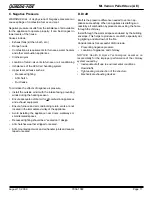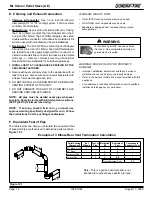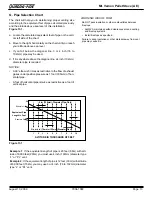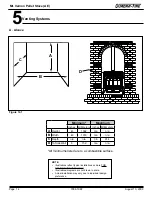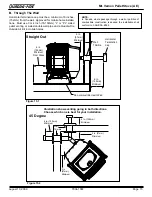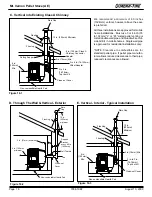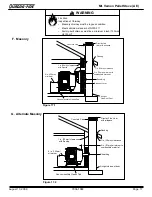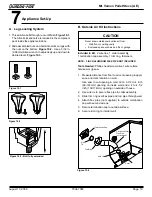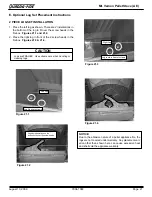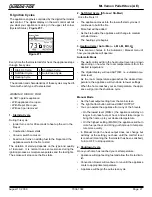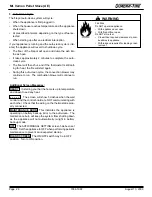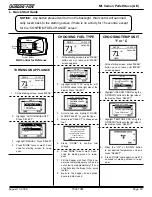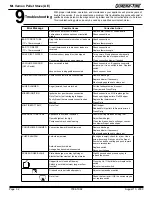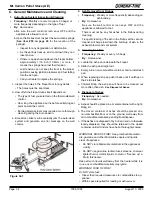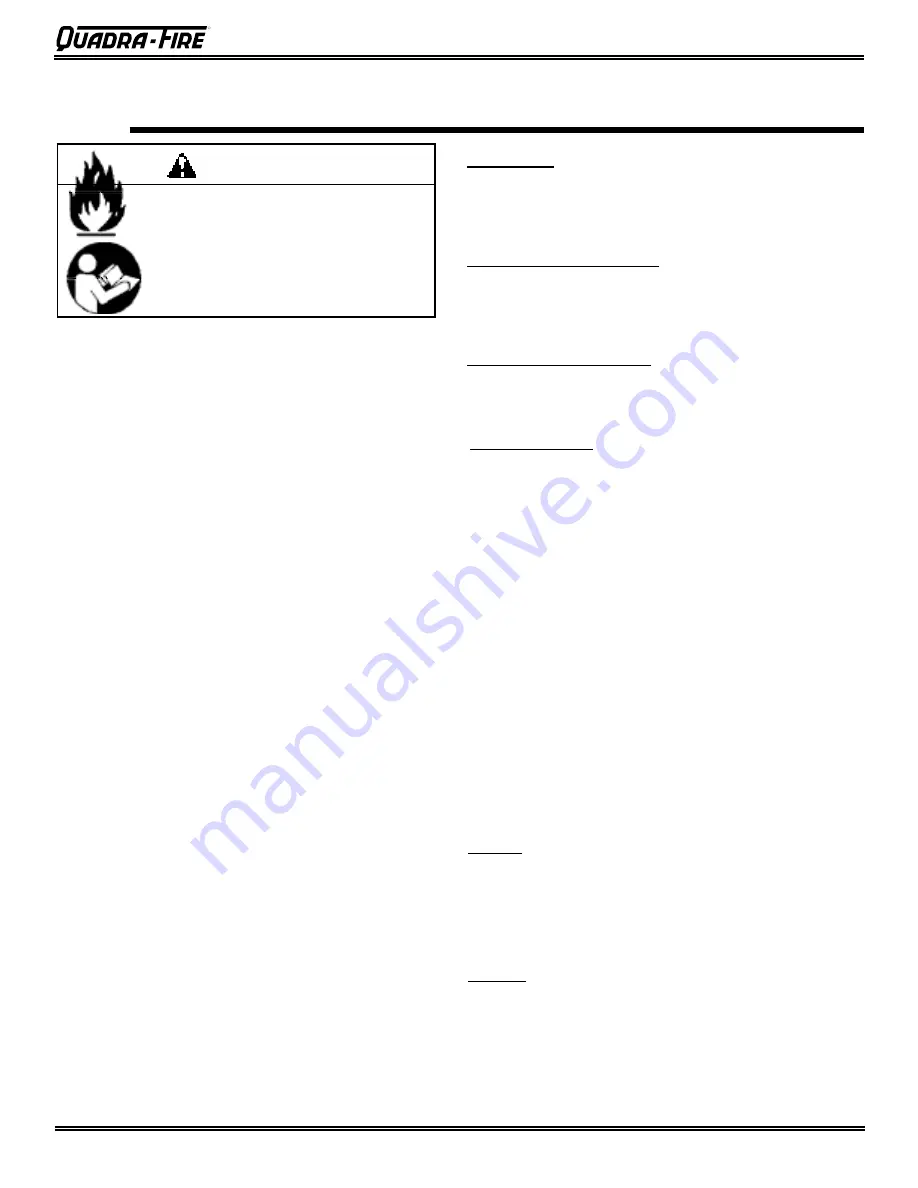
R
R
R
August 13, 2009
7034-106F
Page
Mt. Vernon Pellet Stove (AE)
8
Operating Instructions
A. Fire Safety
To provide reasonable fire safety, the following should be
given serious consideration:
• Install at least one smoke detector and CO
monitor on each
floor of your home.
• Locate detectors away from the heating appliance and close
to the sleeping areas.
• Follow the detector’s manufacturer’s placement and
installation instructions and maintain regularly.
• Conveniently locate a Class A fire extinguisher to contend
with small fires.
• In the event of a hopper fire:
• Evacute the house immediately.
• Notify fire department.
B. Combustible/Non-Combustible Materials
•
Combustible Material
Material made of or surfaced with wood, compressed
paper, plant fibers, plastics, or any material capable
of igniting and burning, whether flame-proofed or not,
plastered or unplastered.
•
Non-combustible Material
Material which will not ignite and burn. Such materials are
those consisting entirely of steel, iron, brick, tile, slate,
glass or plasters, or any combination thereof.
•
Non-combustible Sealant Material
Sealants which will not ignite and burn: Rutland, Inc.
Fireplace Mortar #6, Rutland 76R, Nuflex 0, GE
RTV106 or GE RTB116 (or equivalent).
Clinkers
Minerals and other non-combustible materials such as sand
will turn into a hard, glass-like substance called a clinker when
heated in the firepot.
Trees from different areas will vary in mineral content. That
is why some fuels produce more clinkers than others.
Moisture
Always burn dry fuel. Burning fuel with high moisture content
takes heat from the fuel and tends to cool the appliance,
robbing heat from your home. Damp pellet fuel can clog the
feed system.
C. Fuel Material and Fuel Storage
Pellet fuel quality can greatly fluctuate. This appliance has
been designed to burn a wide variety of fuels, giving you
the choice to use the fuel that is most economical in your
region.
Hearth & Home Techonologies strongly recommends only
using Pellet Fuel Institute (PFI) certified fuel.
Shelled Field Corn
• Must be 15% or less moisture content.
•
Must be clean and free from debris
•
Never burn corn straight from the field
•
Stalk parts, excessive fines and cob remnants, etc. will
clog the auger mechanism
• Corn with excessive grain dust must be screened
by sifting
with /16 inch (.7mm) mesh screening
CAUTION
!
Do not b
urn fuel that contains an additive;
(such as soybean oil
).
• May cause hopper fires
• Damage to product may result
Read the ingredients list on the package. If you are buying
corn or wheat the only ingredient that should be listed is
corn or wheat.
WARNING! Risk of Chemical Poisoning!
Do
NOT
burn treated seed corn
• Chemical pesticides are harmful or fatal if swallowed
• Burning treated seed corn will void your warranty
Fuel Material
• Made from sawdust or wood by-products
• Shelled field corn & other biomass fuels
• Depending on the source material it may have a high or
low ash content.
Higher Ash Content Material
• Hardwoods with a high mineral content
• Fuel that contains bark
• Standard grade pellets, high ash pellets, corn and other
biomass fuels
Lower Ash Content Material
• Softwoods
• Fuels with low mineral content
• Premium grade pellets
Fire Risk.
WARNING
• Do not operate appliance before reading
and understanding operating instructions.
• Failure to operate appliance properly may
cause a house fire.

